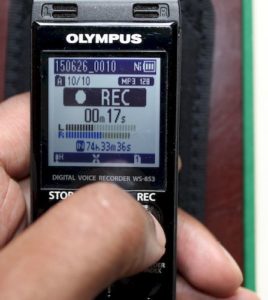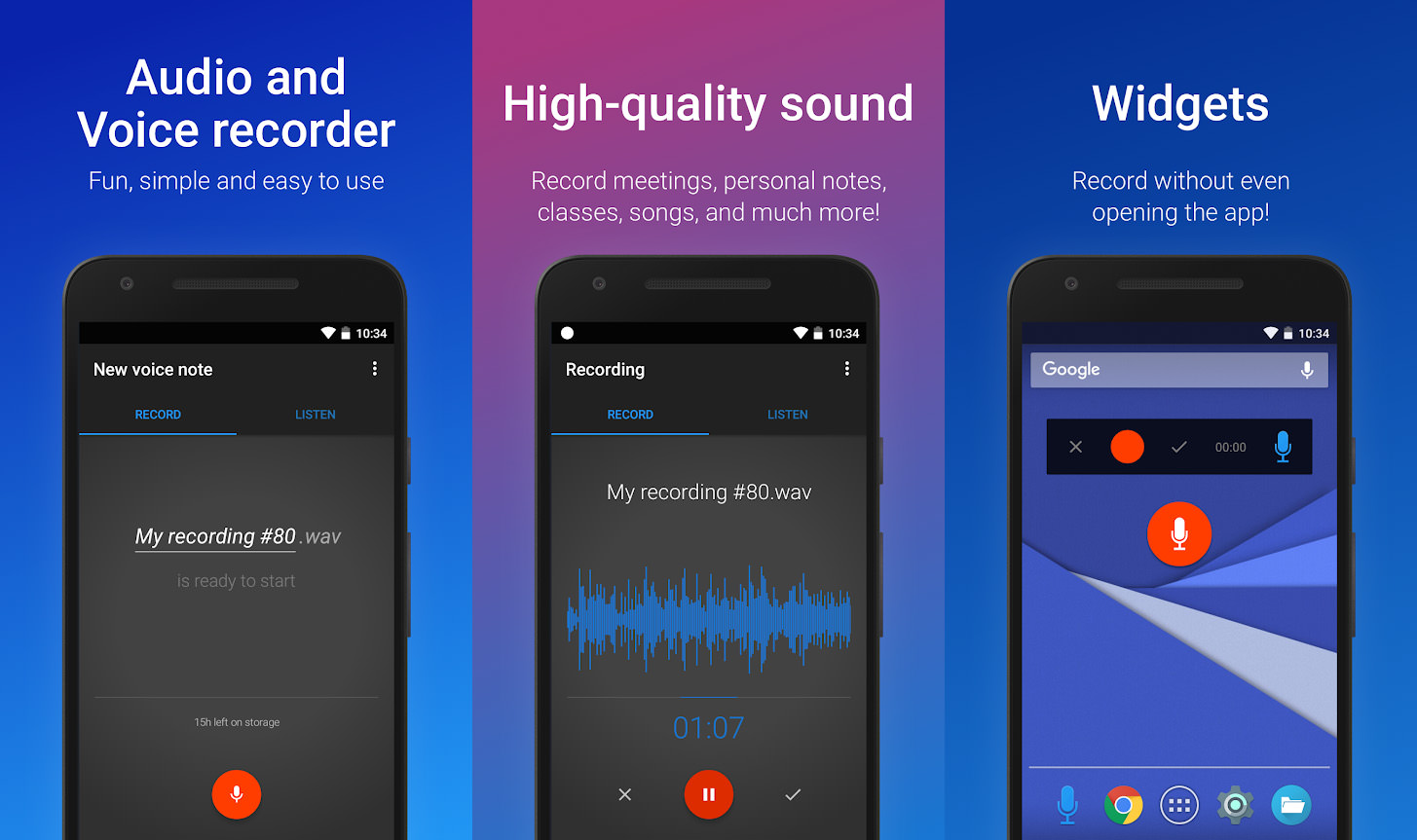
#Best voice recorder app for lectures code
However, the instructor’s right to privacy or concern over copyright does not override the student’s right to accommodation.įor more information on the rights of students approved for Audio Recording Lectures, please see the Office for Civil Rights – Q & A Regarding Audio Recording and the California Education Code 78907. If an instructor objects to the use of a recording device, it is typically because they maintain that their right to privacy of information discussed in the classroom is being violated or because there is a concern about a breach of copyright. Instructor’s Right to Privacy and Protecting Copyright If instructors have questions or concerns regarding the recording of their class discussions, or the nature of the information presented and discussed, please consult with a Disability Advisor in the OAE. If these open discussions are not appropriate subject matter for any student to be taking notes, then it would be appropriate to make a general announcement to the class and ask all students to stop note-taking in addition to turning off any recording devices. However, it is important to remember that the use of the recording device is to substitute and support the student’s note taking ability. Occasionally, instructors object to recording classes that involve a great deal of self-disclosure, personal reflection, or confidential discussions from students or presenters as part of the class, fearing that the recording device will inhibit students from sharing freely or would risk anonymity. Audio recording outside of the typical classroom experience (including fieldwork, internships, clinicals, and etc.) may need to be discussed on a case-by-case basis in collaboration with the instructors, programs, site and/or OAE as appropriateĬlasses That Involve Contain Sensitive Material (i.e., Self-Disclosure) Students who have been granted permission to audio record class lectures as an accommodation must agree to abide by each of these provisions. The student agrees to destroy any recordings that were made when they are no longer needed for their academic work.The student acknowledges that the recordings are sources, the use of which in any academic work is governed by rules of academic conduct at Stanford University, in addition to federal copyright laws.The student may not share these recordings with any other person, whether or not that person is in their class.Recordings of class lectures are only for the student’s personal use in study and preparation related to the class.Use of the accommodation of audio recording class lectures is subject to the following conditions:


#Best voice recorder app for lectures software
Methods of making an audio recording may include an audio recording device, a Livescribe pen, or the use of recording software on a laptop or a cellular phone (e.g., Sonocent, Audionote, Otter.ai). As with all accommodations, this accommodation is approved on an individual basis to ameliorate the student’s disability-related impacts within the classroom. The accommodation of use of an audio recording device to record lectures allows students with disabilities to have an equal chance to receive and process information presented in class by supporting their notetaking needs.

Document Remediation by OAE’s Alternate Format Team.How To: Add Captions in Canvas - Course Videos.Exam Accommodations: Distraction-Reduced Seating.Determining Essential Requirements for Courses/Programs.Being Neighborly: Disability-Inclusive Considerations for Living in a Community.National Disability Organizations and Resources.Additional Considerations for People with Disabilities.Assistive Technology for Online Learning.Guidance for Faculty on Recording Courses.Guidance on Exam Accommodations During Remote Instruction.Non-Academic Requests & Facility Access.Disability-Inclusive Considerations for Living in a Community.Support Animals in Stanford Student Housing.



 0 kommentar(er)
0 kommentar(er)
